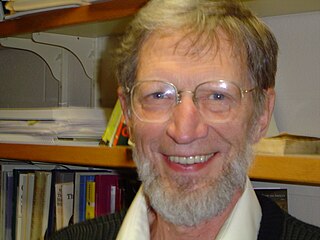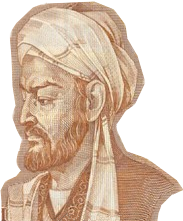
Omnipotence is the quality of having unlimited power. Monotheistic religions generally attribute omnipotence only to the deity of their faith. In the monotheistic religious philosophy of Abrahamic religions, omnipotence is often listed as one of God's characteristics, along with omniscience, omnipresence, and omnibenevolence. The presence of all these properties in a single entity has given rise to considerable theological debate, prominently including the problem of evil, the question of why such a deity would permit the existence of evil. It is accepted in philosophy and science that omnipotence can never be effectively understood.
The problem of evil is the philosophical question of how to reconcile the existence of evil and suffering with an omnipotent, omnibenevolent, and omniscient God. There are currently differing definitions of these concepts. The best known presentation of the problem is attributed to the Greek philosopher Epicurus. It was popularized by David Hume.

In the philosophy of religion, a theodicy is an argument that attempts to resolve the problem of evil that arises when all power and all goodness are simultaneously ascribed to God.

Omnipotence paradox is a family of paradoxes that arise with some understandings of the term omnipotent. The paradox arises, for example, if one assumes that an omnipotent being has no limits and is capable of realizing any outcome, even a logically contradictory one such as creating a square circle. Atheological arguments based on the omnipotence paradox are sometimes described as evidence for countering theism. Other possible resolutions to the paradox hinge on the definition of omnipotence applied and the nature of God regarding this application and whether omnipotence is directed toward God Himself or outward toward his external surroundings.

Alvin Carl Plantinga is an American analytic philosopher who works primarily in the fields of philosophy of religion, epistemology, and logic.

In classical theistic and monotheistic theology, the doctrine of Divine Simplicity says that God is simple.
The argument from free will, also called the paradox of free will or theological fatalism, contends that omniscience and free will are incompatible and that any conception of God that incorporates both properties is therefore inconceivable. See the various controversies over claims of God's omniscience, in particular the critical notion of foreknowledge. These arguments are deeply concerned with the implications of predestination.

Meditations on First Philosophy, in which the existence of God and the immortality of the soul are demonstrated is a philosophical treatise by René Descartes first published in Latin in 1641. The French translation was published in 1647 as Méditations Métaphysiques. The title may contain a misreading by the printer, mistaking animae immortalitas for animae immaterialitas, as suspected by A. Baillet.
The existence of God is a subject of debate in the philosophy of religion. A wide variety of arguments for and against the existence of God can be categorized as logical, empirical, metaphysical, subjective or scientific. In philosophical terms, the question of the existence of God involves the disciplines of epistemology and ontology and the theory of value.

The evil demon, also known as Deus deceptor, malicious demon, and evil genius, is an epistemological concept that features prominently in Cartesian philosophy. In the first of his 1641 Meditations on First Philosophy, Descartes imagines that a malevolent God or an evil demon, of "utmost power and cunning has employed all his energies in order to deceive me." This malevolent God or evil demon is imagined to present a complete illusion of an external world, so that Descartes can say, "I shall think that the sky, the air, the earth, colours, shapes, sounds and all external things are merely the delusions of dreams which he has devised to ensnare my judgement. I shall consider myself as not having hands or eyes, or flesh, or blood or senses, but as falsely believing that I have all these things."

The phrase "the best of all possible worlds" was coined by the German polymath and Enlightenment philosopher Gottfried Leibniz in his 1710 work Essais de Théodicée sur la bonté de Dieu, la liberté de l'homme et l'origine du mal, more commonly known simply as the Theodicy. The claim that the actual world is the best of all possible worlds is the central argument in Leibniz's theodicy, or his attempt to solve the problem of evil.
Theological determinism is a form of predeterminism which states that all events that happen are pre-ordained, and/or predestined to happen, by one or more divine beings, or that they are destined to occur given the divine beings' omniscience. Theological determinism exists in a number of religions, including Jainism, Judaism, Christianity, and Islam. It is also supported by proponents of Classical pantheism such as the Stoics and by philosophers such as Baruch Spinoza.
The following outline is provided as an overview of and topical guide to atheism:

Alvin Plantinga's free-will defense is a logical argument developed by the American analytic philosopher Alvin Plantinga and published in its final version in his 1977 book God, Freedom, and Evil. Plantinga's argument is a defense against the logical problem of evil as formulated by the philosopher J. L. Mackie beginning in 1955. Mackie's formulation of the logical problem of evil argued that three attributes ascribed to God are logically incompatible with the existence of evil.
An ontological argument is a deductive philosophical argument, made from an ontological basis, that is advanced in support of the existence of God. Such arguments tend to refer to the state of being or existing. More specifically, ontological arguments are commonly conceived a priori in regard to the organization of the universe, whereby, if such organizational structure is true, God must exist.
Skeptical theism is the view that people should remain skeptical of their ability to discern whether their perceptions about evil can be considered good evidence against the existence of the orthodox Christian God. The central thesis of skeptical theism is that it would not be surprising for an infinitely intelligent and knowledgeable being's reasons for permitting evils to be beyond human comprehension. That is, what may seem like pointless evils may be necessary for a greater good or to prevent equal or even greater evils. This central thesis may be argued from a theistic perspective, but is also argued to defend positions of agnosticism.

The Augustinian theodicy, named for the 4th- and 5th-century theologian and philosopher Augustine of Hippo, is a type of Christian theodicy that developed in response to the evidential problem of evil. As such, it attempts to explain the probability of an omnipotent (all-powerful) and omnibenevolent (all-loving) God amid evidence of evil in the world. A number of variations of this kind of theodicy have been proposed throughout history; their similarities were first described by the 20th-century philosopher John Hick, who classified them as "Augustinian". They typically assert that God is perfectly (ideally) good, that he created the world out of nothing, and that evil is the result of humanity's original sin. The entry of evil into the world is generally explained as consequence of original sin and its continued presence due to humans' misuse of free will and concupiscence. God's goodness and benevolence, according to the Augustinian theodicy, remain perfect and without responsibility for evil or suffering.

The Proof of the Truthful is a formal argument for proving the existence of God introduced by the Islamic philosopher Avicenna. Avicenna argued that there must be a "necessary existent", an entity that cannot not exist. The argument says that the entire set of contingent things must have a cause that is not contingent because otherwise it would be included in the set. Furthermore, through a series of arguments, he derived that the necessary existent must have attributes that he identified with God in Islam, including unity, simplicity, immateriality, intellect, power, generosity, and goodness.
Evolutionary theodicies are responses to the question of animal suffering as an aspect of the problem of evil. These theodicies assert that a universe which contains the beauty and complexity this one does could only come about by the natural processes of evolution. If evolution is the only way this world could have been created, then the goodness of creation is intrinsically linked to the pain and evil of the evolutionary processes.

The Epicurus paradox is a logical dilemma about the problem of evil attributed to the Greek philosopher Epicurus, who argued against the existence of a god who is simultaneously omniscient, omnipotent, and omnibenevolent.









